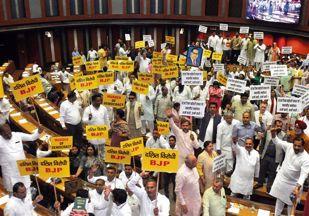New Delhi, June 27
At a time when climate change is set to impact rice production in Asia, simple water management by farmers as an adaptation strategy will minimise the damage, an expert said.
“Climate change will impact rice production in large parts of Asia, including India. Water management will be a key feature of decisions aimed at adapting to the impact of climate change,” Dennis Wichelns, Senior Research Fellow of Thailand-based Stockholm Environment Institute (SEI), said during the Knowledge Forum on Climate Resilient Development in Himalayan and Downstream Regions held here recently.
The event was organised jointly by the Ministry of Agriculture and Farmers’ Welfare, Kathmandu-based International Centre for Integrated Mountain Development and the Delhi-based Institute of Economic Growth (IEG).
According to Wichelns, improvement in water management will help in areas where higher temperatures are likely and where a shift in the rainfall pattern is expected.
In certain areas, crop yields will increase in some seasons, perhaps in response to higher rainfall during the production cycle or with a reduction in summer days in the northern region. In other areas, yields might be reduced due to higher night temperatures, untimely drought conditions, or submergence caused by massive natural events.
According to Wichelns, an improvement in water management will also help in reducing methane emissions and arsenic uptake in the rice fields.
“Methane is a potent greenhouse gas. It is estimated that up to 20 per cent of the anthropogenic releases of methane to the atmosphere are generated in agriculture, largely by livestock and in rice production,” he said.
“The anaerobic conditions in which paddy rice is produced is largely responsible for the methane generation and release. Methanogenic organisms, which thrive in anaerobic conditions, break down carbonaceous materials and form methane,” he added.
He said rice production generated a substantial amount of methane annually, thus adding notably to the amount of greenhouse gases released into the atmosphere each year.
Switching from flooded paddy production to aerobic rice production or to alternative crops that are produced in aerobic conditions can substantially reduce regional methane emissions, Wichelns added. — IANS



























